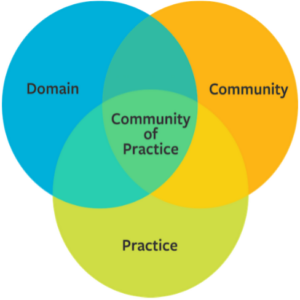Get Involved

 Become a Thought Partner
Become a Thought Partner
Partner with us to produce thought leadership that moves the needle on behavioral healthcare.
 Other options to get involved
Other options to get involved

Thank you!
We received your information and will be in contact soon!
Get Involved

 Grantmaking
Grantmaking
We fund organizations and projects which disrupt our current behavioral health space and create impact at the individual, organizational, and societal levels.
 Participatory Funds
Participatory Funds
Our participatory funds alter traditional grantmaking by shifting power
to impacted communities to direct resources and make funding decisions.
 Special Grant Programs
Special Grant Programs
We build public and private partnerships to administer grant dollars toward targeted programs.
 Program Related Investments
Program Related Investments
We provide funds at below-market interest rates that can be particularly useful to start, grow, or sustain a program, or when results cannot be achieved with grant dollars alone.
Get Involved

 Tia Burroughs Clayton, MSS
Tia Burroughs Clayton, MSS
Learning and Community Impact Consultant
Add some text here
 Alyson Ferguson, MPH
Alyson Ferguson, MPH
Chief Operating Officer
Contact Alyson about grantmaking, program related investments, and the paper series.
 Samantha Matlin, PhD
Samantha Matlin, PhD
Senior Learning & Community Impact Consultant
Contact Samantha about program planning and evaluation consulting services.
 Caitlin O'Brien, MPH
Caitlin O'Brien, MPH
Director of Learning & Community Impact
Contact Caitlin about the Community Fund for Immigrant Wellness, the Annual Innovation Award, and trauma-informed programming.
 Joe Pyle, MA
Joe Pyle, MA
President
Contact Joe about partnership opportunities, thought leadership, and the Foundation’s property.
 Bridget Talone, MFA
Bridget Talone, MFA
Grants Manager for Learning and Community Impact
Add some text here
The Community Fund for Immigrant Wellness (the Community Fund) managed by the Scattergood Foundation and its partners addresses the emotional health and wellbeing of immigrant and refugee communities. Through its participatory grantmaking process, the Community Fund provides financial support and capacity building opportunities to local immigrant-serving organizations to promote collective healing by cultivating meaningful connections and honoring immigrant communities’ cultural practices. Every year, the Community Fund invites its grantee organizations to join the Community of Practice. Convened virtually five times a year, these meetings serve as a peer-learning opportunity for nonprofit leaders, the majority of whom are immigrants themselves.
Community of Practice (C of P) is a distinct approach for organizational learning. In contrast to conventional training and professional development led by outside experts, C of P facilitates learning through mutual engagement: members learning from their interaction with one another and by developing shared resources.
What is Community of Practice? How can this approach be used for capacity building?
Many grantmakers provide capacity building1 for their grantee organizations to strengthen their organization’s operations and sustainability (National Council of Nonprofits, 2024). Funders may choose different strategies for this purpose, depending on the grantee’s needs and/or what the funders want their grantees to accomplish. When capacity builders work with small nonprofits led by people of color, careful considerations should be made about the approaches they use. Nishimura et al. (2020) suggest the traditional capacity building approach often fails nonprofits of color because it is overly focused on the organizational “effectiveness” around compliance. They argue that the conventional capacity building methods tend to target nonprofits’ “effectiveness” in navigating the philanthropic sector’s bureaucratic system rather than supporting the organizations in serving their community more effectively. The authors share key recommendations for designing capacity building for nonprofits of color, including developing trustworthy and culturally resonant relationships and facilitating peer-engagement (Nishimura et al. 2020).
Community of Practice is precisely this type of learning opportunity, one that funders can consider in working with their grantees to facilitate peer engagement and trusting relationships. But what exactly is Community of Practice? How does this method distinguish from other learning opportunities? How can funders use this capacity building approach most effectively to support organizational leaders they work with?
According to Etienne Wenger, a social learning theorist who coined the term with his fellow scholar, Jean Lave,
Communities of Practice are groups of people who share a concern, a set of problems, or a passion about a topic, and who deepen their knowledge and expertise in this area by interacting on an ongoing basis. (Wenger, et al., 2022 p.4)2

A Community of Practice is characterized by three fundamental components: “a domain of knowledge, which defines a set of issues; a community of people who care about this domain; and the shared practice that they are developing to be effective in their domain. (Wenger, et al, 2022, p.27)
Of note, a Community of Practice is not about knowledge acquisition where experts teach participants specific information and skills. It is not an instruction-focused model which perceives participants as an object of teaching, but rather, sees participants as co-creators of learning resources. Elevating the value of the existing knowledge and experiences of the practitioners, Community of Practice sees the community itself as a living curriculum (Learning for All, 2016, emphases added). Therefore, the core value is the “community’s learning resources” (Lave & Wenger 1991, p. 94). By accessing the wisdom cultivated through its members’ lived experiences, a Community of Practice facilitates a process of collective inquiry and problem-solving that is contextual and relevant to its members, their organizations and the community they serve.
Grounded in the belief that learning is generated by members’ participation in a community, their active engagement is crucial in the Community of Practice. It follows that, as Wenger et al. assert, cultivating a sense of trust in the Community of Practice is critical.
“…the key is to build a foundation for collective inquiry. An effective Community of Practice offers a place of exploration where it is safe to speak the truth and ask hard questions. Trust is key to this process.” (Wenger, et al. 2022, p. 37, emphases added)
Community of Practice with Immigrant Leaders
This year’s Community of Practice engaged representatives from eleven grantee organizations, which serve the diverse immigrant and refugee communities in Southeastern Pennsylvania.
Facilitated by an external consultant who has a background in behavioral health and community experience, the sessions offered a series of discussions in English with simultaneous Spanish interpretation. The key discussion themes included Organizational Wellness, Measuring Healing and Resilience as Outcomes, Building Community Trust and Power, Storytelling, and Cultural Competency.
At each session, the facilitator posed several open-ended questions for members to engage in a dialogue based on their personal experience and cultural perspectives. The first session started with a positive question, “What has been a strength of your organization in the work you do?”, highlighting their organizational and community assets. As the sessions progress, it has become a reflective space where members can confront pressing, but often publicly concealed challenges such as their emotional fatigue and organizational burnout. A few participants openly shared about the second-hand trauma they experience while serving their own community. The group acknowledged the importance of wellness and healing for their own organization and for themselves. Later sessions generated critical discussions around the tension and dilemma they sometimes feel as an organizational leader from a marginalized community learning to navigate the social service sector and the governmental funding system.
For grantmakers new to this kind of process and type of inquiry, it is important to pause and hear the wisdom being shared. As one member underscored so pointedly, this is a new opportunity for immigrant leaders to come together and share their experiences in addressing emotional health in their community. Recognizing their own expertise in this topic (the “domain”), and seeing the group generates its own learning resources through this Community of Practice, the leader acknowledged, “This (topic) is new, nobody was talking about immigration trauma, but we are doing it here,” … “We are the educators for this theme.”
—
[1] Capacity Building is defined as “the process of building and strengthening the system, structures, cultures, skills, resources, and power that organizations need to serve their communities.” (Nishimura et al. 2020, p.32)
[2] The term was originally coined by Lave and Wenger (1991) and Wenger and his associates further developed the term.












